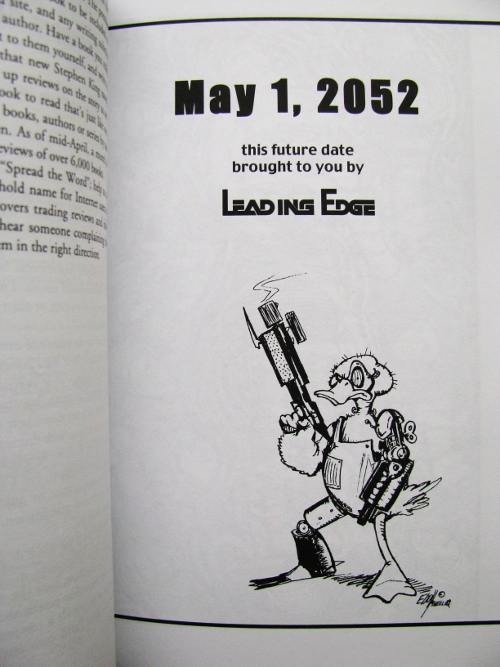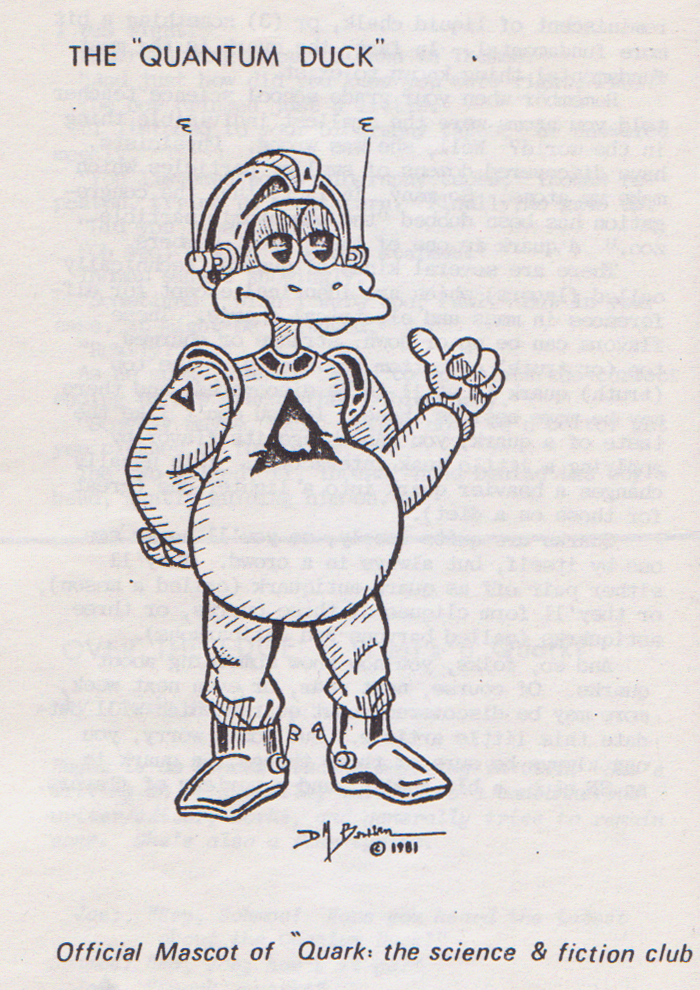 The interview with Dave Wolverton was a resounding success! We had a fascinating conversation about science fiction and the gospel, his latest book In The Company of Angels, self-publishing, the English 318 class at BYU and the profound impact it’s had on the LDS writing community, and much, much more.
The interview with Dave Wolverton was a resounding success! We had a fascinating conversation about science fiction and the gospel, his latest book In The Company of Angels, self-publishing, the English 318 class at BYU and the profound impact it’s had on the LDS writing community, and much, much more.
On that, I suppose I should disclose my full reasons for going down to St George and meeting with Dave. I’m putting together an article for the December 2010 issue of Mormon Artist, where I hope to give a brief history of BYU’s “class that wouldn’t die” and explore the impact that it’s had on both the LDS writing community and on mainstream sf&f.
The “class that wouldn’t die” was the group of students who signed up for the first English 318R science fiction creative writing class at BYU, back in ’78 (I think it was ’78…gotta check that). After the semester was over, the students banded together through forming a writing group, which they called “Xenobia.”
They didn’t stop there, however. As Xenobia grew and matured, the students decided to form other organizations designed to help new writers (especially sf&f writers) improve their craft and build their writing careers. Specifically, they founded Quark, BYU’s science fiction and fantasy club; Leading Edge, a student-run magazine that gives written feedback to every story submitted; and LTUE, an annual science fiction and fantasy symposium (like a convention, only no costumes).
These organizations, as well as the 318 class, led directly to the explosion of LDS writers in science fiction and fantasy. Several bestselling LDS authors, including Stephanie Meyers, Brandon Sanderson, and Dan Wells (among many others) can trace the launch of their careers back to this class. In turn, these authors are having a tremendous impact on mainstream sf&f literature.
The article is slated to come out in next December’s issue of Mormon Artist Magazine, just in time for LTUE 2011 (which I hope to attend). Right now, I’m in the research phase, meeting with some really amazing people and gathering some fascinating stories. This article is going to be awesome.
In parting, let me share one of the more interesting things Dave said in the interview. As we talked about all these amazing resources available for sf&f writers in Utah valley, I asked him why this happened in this community and not elsewhere.
His answer was extremely insightful: for many writers, the mentality is that once you break in, you have to close the gate behind you. It’s something of a zero-sub game, where people horde their ideas, compete with each other to break in, etc.
Not so in the LDS community. As Latter-day Saints, we have a deep-set mentality of helping each other and building each other up. That’s exactly what happened with the “class that wouldn’t die”–they did everything they could to foster other writers. The proliferation of Latter-day Saints in mainstream sf&f is a direct result of this.
That’s Dave’s take on it, anyway. It will be interesting to hear what others think.
Oh, and FYI, Mormon Artist is 100% volunteer run and free, so when the article and interview come out, you won’t have to pay anything to read them. I’ll certainly provide links on this blog–stay tuned!
And as one final note, check out this piece of Xenobia history: the original Quantum Duck, as featured in the first issue of The Leading Edge. Why a quantum duck, you ask? Because that’s where the club’s name came from: a bumper sticker that said: BEWARE THE QUANTUM DUCK THAT GOES ‘QUARK,’ ‘QUARK’!

Sounds like a really interesting interview, OLL! Looks like Dave Wolverton was a great writer to chat with. I look forward to reading the article.
I used to live down the street from Dave– he came to our ward once and I remember his face. I never met him, though– I was probably 11 or 12 when he moved away. I did read ‘The Courtship of Princess Leia’ which was cool, and I look forward to reading all about the interview.
Writers founded Quark?? Seriously? Because when I came in, the writing side of Quark was practically dead. People had given up trying to re-start it, too. Truth be told, -I- didn’t even think I’d get it going. I thought I was going to end up as a figurehead like the other writing VPs. Very glad that didn’t happen 😀
um, is it bad that I think the Quark Duck looks pregnant?
I look forward to reading your article.
Sounds like a pretty cool interview–I’m also looking forward to reading the article.
I actually find the whole sf/f community to be pretty open when it comes to, er, leaving the door open, behind them. Or the current generation seems to be, anyway. So I think it might also be a generational difference. Writers are so active online now, that it is easier for them to interact with up-and-coming writers than ever before. Of course, interaction is very different than mentorship, but still. Also, most writers I’ve encountered–especially at conventions–have been very open and willing to help and answer questions.
Of course, a writer has to have at least some semblance of helpful-ness and a disposition to help those who are traveling the path he/she trod in order to succeed with any audience. There’s something to be said for that, too.
That said, I think Dave Wolverton’s point is valid. While the sf/f community is relatively open to new writers at the moment, the sf/f writing scene in Utah is that much more helpful and willing to take young authors under its wing.
The institution and continuation of BYU’s English 318R class, the Leading Edge, Quark, and LTUE are certainly huge factors in Utah’s cultivation of writing talent. I have to say, its an exciting place to be for a sf/f writer. There ALWAYS seems to be something going on. And it is awesome to see what kind of talent “leaving the door open” digs up.
It is, in the end, freaking cool.
Wow, glad to hear it went well! I bet the article will be fantastic. 😀 Who else are you interviewing?
@Charlie: Most of the people I’ve spoken with aren’t as well known as Dave Wolverton; however, I’ve already spoken with Dave Doering and Carolyn Nicita. I hope to also meet with Brandon Sanderson, Dan Wells, and Shayne Bell, but most of the key people you probably haven’t heard of, since they didn’t published beyond a few short stories here and there.
Just a quick correction for you . . . the SF class that was supposed to have been taught by Orson Scott Card that ended up being taught by Marion K. Smith which led to Xenobia was in 1980. I wasn’t in the class, but my husband was. I wasn’t much of a writer, but I loved being a part of Xenobia and Quark.
Thanks for the correction! Yeah, I probably should have known that from talking with Dave Doering, but I didn’t have the notes right at hand. The article itself will be much more thoroughly researched. Speaking of which, I need to get in touch with you and your husband for an interview and/or some questions…